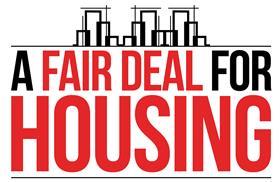Housing organisations say it is ‘inevitable’ development will be hit if government does not act on grant levels

Soaring inflation is a “major risk” to the success of the government’s flagship affordable housing programme as grant rates remain static while costs soar, a report from the Department for Levelling Up Housing & Communities (DLUHC) has warned.
A DLUHC report this week warns the increases in inflation and interest rates are “sudden and unforeseen” and are “not reflected in initial bids and grant rates.”
The report on the progress of the £11.5bn affordable homes programme (AHP) said: “The pressures could have a serious impact on the financial viability of individual schemes and also on the overall financial health of providers. This could limit the appetite for grant funding and significantly affect the success of the programme”.
The AHP is intended to deliver 162,000 homes over five years, including 35,000 in London. It is administered by Homes England and the Greater London Authority in the capital.

The report was published amid mounting concern in the affordable housing sector that rising inflation may leave housing associations handing back their development grant unless it can be increased or index-linked.
Many associations’ income will be constrained further if they choose not to impose the full consumer price index-linked maximum rent increase for existing residents next year because of cost of living concerns.
John Perry, policy advisor at the Chartered Institute of Housing, said the potential impact of inflation on investment in new homes “is very worrying”.
Perry said: “Given rising costs of labour and materials, an impact on investment looks inevitable. The only way to address this is by raising grant levels”.
Fiona Fletcher-Smith, chief executive of L&Q, said it was “inevitable” the AHP will be in danger if nothing changes.
She said: “In inflationary times, grant is completely eroded, so we do need to have proper conversations with the Greater London Authority and Homes England.”
She said, for example that a subsidy for a shared ownership home of £28,000 in London “doesn’t touch the sides”. Grant levels are fixed for the life of the 2021-26 programme.
See also>> Housing Today launches campaign for A Fair Deal for Housing
See also>> A higher grant rate and more flexibility – will the AHP be a game-changer?
Fletcher-Smith said: “If the subsidy just isn’t cutting it, we’re not going to take the money away from our residents to subsidise new builds, and you’ll see that for most associations now.”
Several housing associations have told Housing Today’s A Fair Deal for Housing campaign that grant rates should be adjusted to take into account rising costs.

A spokesperson for Optivo said: “A long-term inflation-linked rent settlement is crucial for our long-term development pipeline.”
A spokesperson for 21,000-home EMH Group warned schemes are “becoming unviable” and that it wants grant rates to reflect inflation. North east-based provider Thirteen Group said: “We’d like to see more grant in the face of inflation.”
Under current rent-setting rules, housing associations can raise their rents for the next financial year by a maximum of the September rate of consumer price index (CPI) plus 1%.
With CPI hitting 8.2% in June and rising, housing associations, most of which are non-profit, will have to decide whether to put rents up by large amount for 2022/23 or risk taking a financial hit to protect tenants’ incomes as costs soar.
A DLUHC spokesperson said: “Our AHP is boosting housing supply across the country and helping hard-working people on to the housing ladder.
“We keep all our programmes under regular review, and work with Homes England and the GLA as well as housing associations and other providers to understand any risks to delivery, including the effects of inflation.”
A Fair Deal for Housing

Housing Today believes the government should not back away from its manifesto pledge of building 300,000 new homes a year by the middle of the decade. We badly need more homes, and a lack of supply is a major factor in creating problems of affordability for both buyers and renters.
Over the next few months, Housing Today will be exploring potential solutions to help us ramp up housebuilding to 300,000. These are likely to include different ways of working, funding asks of government and policy ideas that could boost housebuilding.
We want to hear from you: what do you think can make a difference at a policy level?
What can the industry do better?
We believe that, with the right commitments from ministers and the industry, it is possible to build more homes and help the government to meet its objectives to “build beautiful”, improve quality and safety, boost home ownership and level up the UK.
Click here to find out more about the campaign
To contribute ideas to our A Fair Deal for Housing Ideas Zone database, click here.











No comments yet